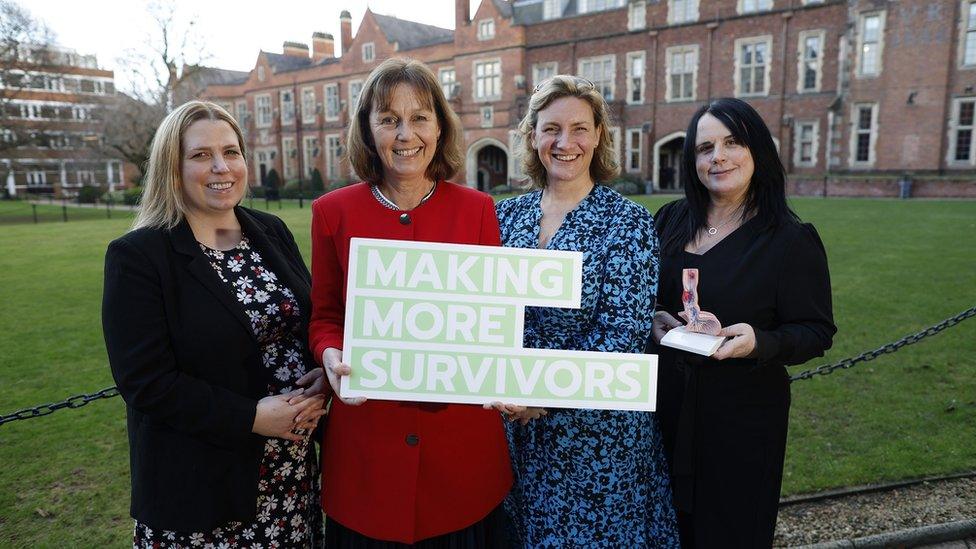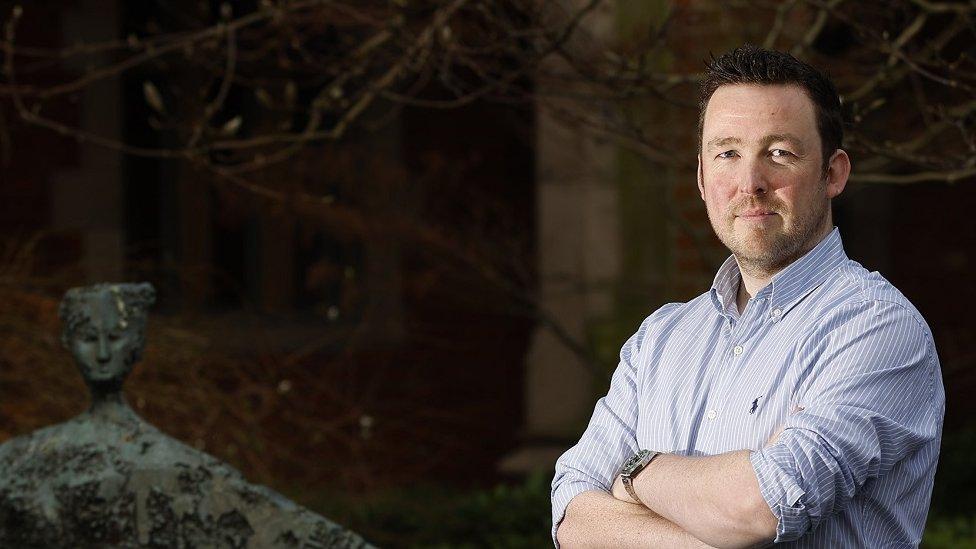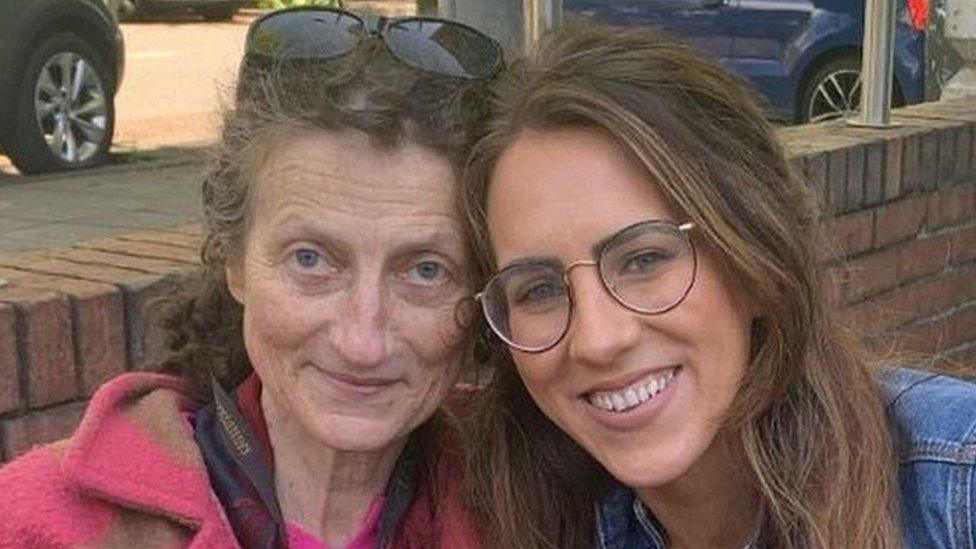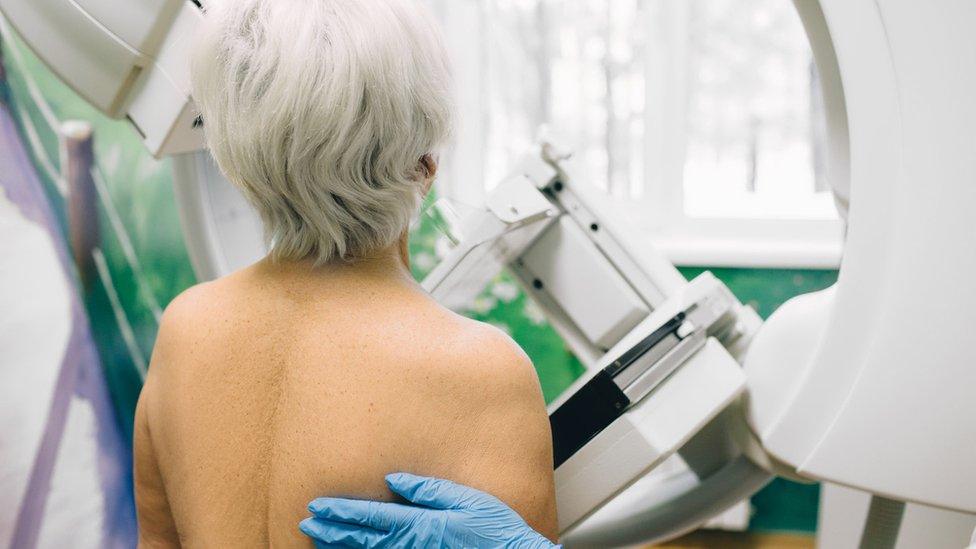First All-Ireland Cancer Network launched
- Published

Prof. Helen Coleman, Queen's University Belfast, Prof. Juliette Hussey from Trinity College Dublin, Orla Dolan CEO Breakthrough Cancer Research, and Prof. Jacintha O’Sullivan, Trinity St. James’s Cancer Institute
Queen's University is one of several organisations teaming up in the first All-Ireland Cancer Network (AllCaN).
The collaboration between six research institutions and universities North and South of the border is funded by the charity Breakthrough Cancer Research.
An initial grant of €1m will allow AllCaN to focus on research into oesophageal cancer.
Ireland and the UK have the highest incident rate of this type of cancer in the world.
In Northern Ireland there is a five-year survival rate of 19%.
The rate is 24% in the Republic of Ireland.
Researchers say the identification of, and improved treatments for people with Oesophageal Cancer and Barrett's oesophagus (a significant risk factor for oesophageal cancer), could significantly control the progression of the disease and improve survival rates.
'A game changer'
At the launch of AllCaN in Queen's University Belfast, Breakthrough Cancer Research CEO Orla Dolan said the collaboration "is a game changer for low survival cancer research on the island of Ireland".
"The inaugural project will bring everyone working on, or living with, oesophageal cancer in Ireland together to take on the key challenges, with the aim of doubling survival in 20 years.
"Research works and, over the last 50 years, we have seen huge progress delivered in overall survival. Today we have over 200,000 cancer survivors in the Republic of Ireland but unfortunately, less than 1% of them have survived an oesophageal Cancer diagnosis. Research is not a luxury, it is a necessity," she said.

John Clarke was diagnosed with Barrett's oesophagus at age 33
John Clarke was diagnosed with Barrett's oesophagus at age 33 and is a Public Patient Involvement (PPI) representative for AllCaN.
He said: "I am unlucky to have Barrett's oesophagus, but I am lucky to know I have it. Awareness is the key with any condition. The sooner found the better.
Mr Clarke described the launch of an all-Ireland cancer register as "unbelievable".
He said: "The possibilities it opens are endless. Imagine the day we can tell everyone with oesophageal cancer that there's a lifestyle plan or treatment that will contain and control the disease and enable them to live with it and improve their quality of life."
'Exciting catalyst'
AllCaN's first research project is being led by Prof Jacinta O'Sullivan, Trinity St. James' Cancer Institute and co-led by Prof Helen Coleman.
It will link six major academic institutions across the island of Ireland - Trinity College, Dublin, Queen's University Belfast; University College Cork; Royal College of Surgeons in Ireland, University College Dublin and University of Galway, as well as the National Cancer Control Programme and the Belfast Health & Social Care Trust.
Prof. Coleman, Lead of the Cancer Epidemiology Research Group at Queen's University Belfast and Deputy Director of the Northern Ireland Cancer Registry said the investment represented an "exciting and very necessary catalyst".
"The charity's innovative vision will bring together world-class infrastructure, research teams and enable training of the next generation of researchers in oesophageal cancer prevention from institutions across the island of Ireland, for the first time, "she said.
"Given that the UK and Ireland have the highest incidence of oesophageal adenocarcinoma worldwide, we have genuine potential to identify new factors that could reduce the risk of oesophageal cancer for future generations and improve quality of life and wellbeing for thousands."
- Published3 February 2023

- Published16 November 2022

- Published29 September 2022
